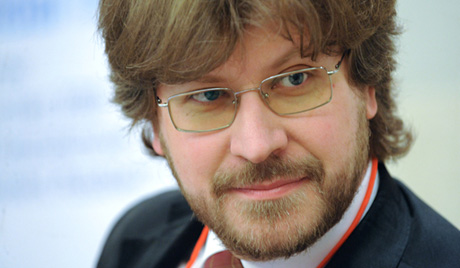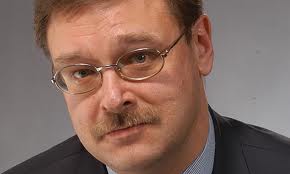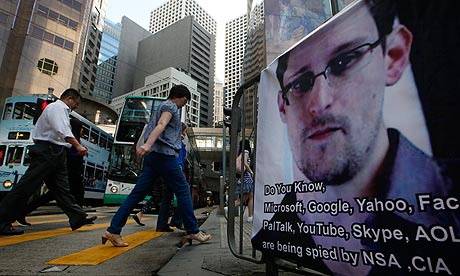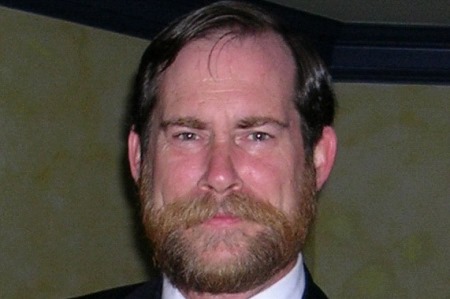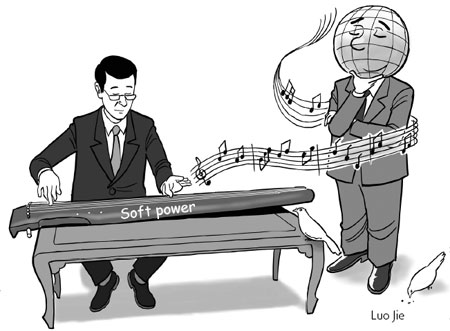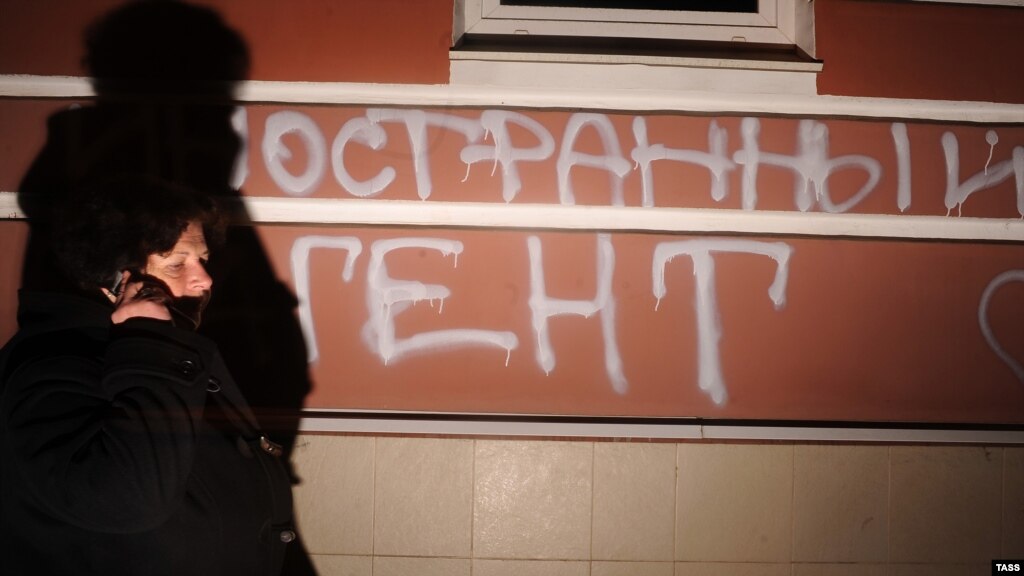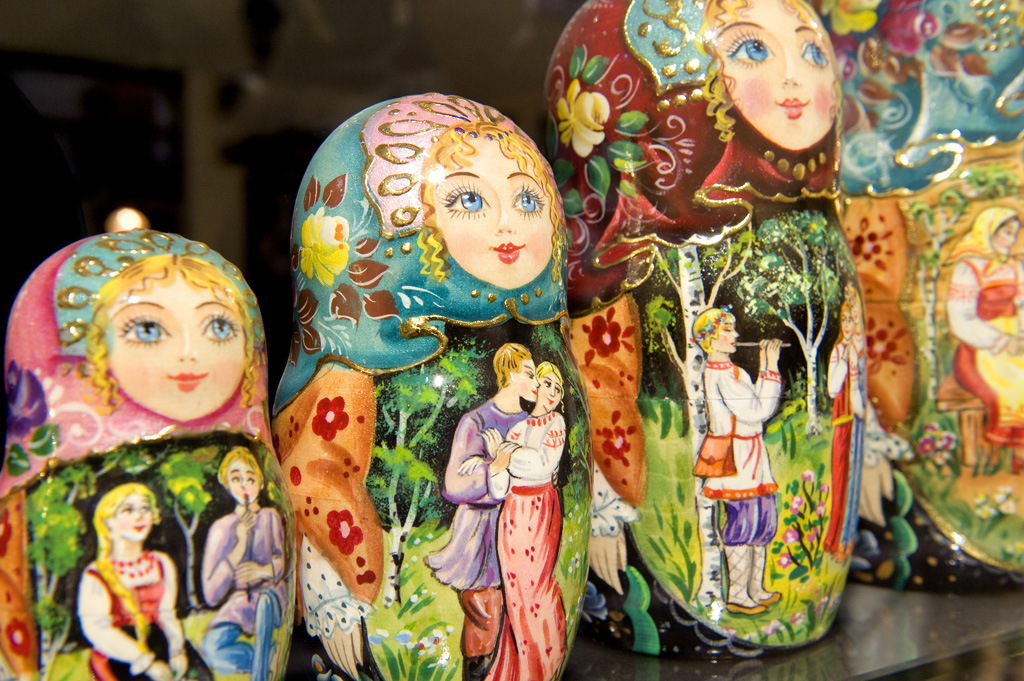
Published 21-05-2013, 08:09
 Professor Joseph Nye of Harvard University,
the author of the concept of "soft power,” has recently reflected on how his
brainchild is faring in the hands of China and Russia. His conclusions are unflattering.
Nye’s verdict is that Russia and China simply do not understand what soft power
is – let alone have it and know how to wield it. Indeed, his article, published
in late April in Foreign
Policy, is titled "What Russia and China Don’t Get About Soft Power”.
Professor Joseph Nye of Harvard University,
the author of the concept of "soft power,” has recently reflected on how his
brainchild is faring in the hands of China and Russia. His conclusions are unflattering.
Nye’s verdict is that Russia and China simply do not understand what soft power
is – let alone have it and know how to wield it. Indeed, his article, published
in late April in Foreign
Policy, is titled "What Russia and China Don’t Get About Soft Power”.
The author’s main charge is that the leaderships of these two countries fail to understand that soft power cannot be generated and deployed by the state but, rather, is a by-product of free societies that possess a thriving private sector and civil society. In fact, according to Nye, soft power stems largely from "everything from universities and foundations to Hollywood and pop culture – not from the government”. The bottom line is that no matter how much cash nations such as Russia and China throw at the promotion of their values, their ability to influence others through soft power is bound to be minimal as long as their societies remain repressive.
It cannot be disputed that the United States – along with the Western nations that it leads – has emerged as the most widely admired model to emulate and that, as such, it has unmatched reserves of soft power. Indeed, to a considerable extent the West’s victory in the Cold War can be attributed to the appeal of the liberal-democratic values it promotes. Thanks to its mode of government, the US today is the largest and most innovative economy, the main driver of the Internet revolution and the largest reservoir of popular culture. And with the related spread of the English language as the globe’s lingua franca, its position as the sole "soft-power superpower” has been consolidated.
Nevertheless, Professor Nye’s conclusions are arguably short-sighted. Not least, he overlooks the uncomfortable fact that, having undergone post-totalitarian liberal revolutions, Russia and China are surging ahead, while the US/West remains mired in a systemic crisis caused by its thriving but untrammelled private sector. For the first time since its rise some two centuries ago, the West is demonstrably faltering while the East is rising.
Another point the US apparently "doesn’t get” is that although Russia and China are unlikely – at least in foreseeable future – to be able to compete with the US/West’s soft power in the global arena, they will almost certainly continue to exercise a strong influence in their respective backyards. Thus it is very unlikely that the US will become the dominant pole of attraction in strategically significant Central Asia, where Russia possesses unchallenged clout stemming from its imperial history.
And then the entire soft power calculus must surely be fundamentally reappraised in light of the ever-growing impact of the Internet. If – as Professor Nye rightly points out – the main generator of soft power is freedom, then the mindset of the Western, Russian and Chinese public will increasingly be formed not by any specific model of government but by a new global consciousness spontaneously evolved via the Internet. The ramifications of this development for the shaping of the global balance of power are bound to be enormous.
Questions:
- •Should Russia be concerned about its relative lack (that is, in comparison with the US) of soft power?
- •Is the concept of soft power at all useful today, given the advent of globalization and the Internet?
 The topic for the Discussion Panel is provided by Vlad Sobell,
The topic for the Discussion Panel is provided by Vlad Sobell, Editor, Expert Discussion Panel
Professor, New York University, Prague
Editor, Consensus East-West Europe
Expert Panel Contributions
(Part I)
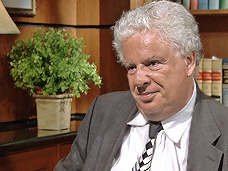 Martin Sieff
Martin SieffChief Global Analyst, The Globalist
An obsession with soft power can lead to soft thinking
A lot of nonsense is talked about soft power. It can even be said that an obsession with soft power generates soft thinking.
Soft, or indirect and cultural power is worth having. But it’s highly over-rated and nations that obsess about it usually do so to compensate for their loss of hard power.
US cultural power started to sweep the word in 1914 with the start of Hollywood’s global domination of the international movie market. But the United States continued to underperform as world power until it was forced into World War II on 7 December 1941. Throughout the 1930s, America’s undoubted soft power global dominance through movies and jazz failed to impress or weaken Nazi Germany and Imperial Japan. These powers still had to be militarily defeated in World War II. It took the combined military power of the Soviet Union, the United States and the British Empire to do that.
Professor Joseph Nye of Harvard University is entirely wrong in claiming that soft power can be generated only by a free society and that government has nothing to do with it. Britain probably has the most impressive soft, or international cultural power ratio to its population and relative global economic power of any country in the world, and the main reason for that is the state-financed British Broadcasting Corporation, the BBC. Just because the United States has historically exported its culture through television networks and Hollywood studios in the private sector does not mean that other countries cannot get useful results using state bodies.
However, Britain’s global prestige and power, its ability to punch far above its weight in the global arena is also a direct product of economic and military success. From the 1950s through the 1970s none of the undeniable brilliance of British literature, free intellectual debate, plays, arts and television, nor all the global conquests of its greatest rock music stars could compensate for its miserable economic and political decline. It was only Prime Minister Margaret Thatcher’s restoration of free market prosperity thanks to privatization, the Big Bang deregulation of the City of London and Britain’s dramatic military victory over Argentina in the 1982 Falklands/Malvinas War that gave the British back their international confidence and global swagger.
The same principles apply to Russia. It remains far behind the United States and China in its global soft power and cultural influence and its impact in these areas across the European Union is negligible. Nor is there any sign that its influence is growing. However, in Africa and Latin America Russia’s soft power, while far behind the rising star of China, is significant and increasing. Russia is generally positively viewed in both regions and across the Arab nations of the Middle East.
The main and usually overlooked or taken-for-granted region for the expression of Russia’s soft power remain its "near abroad”, most of the former Soviet republics, which can also be referred to as the Russophone zone of the world. Here, Russia’s soft power is far stronger than Britain’s soft power influence across the Commonwealth nations of Africa and Asia that used to be parts of the British Empire, or France’s influence in the Francophone nations of Africa and Asia, where Chinese influence is already far stronger.
The TV channel Russia Today, or RT, is already effective in projecting Russian influence and it provides a very telling counterargument to the false claims that there is no freedom of expression or openness of debate in modern Russia. The same can be seen on the different foreign language sites of the RIA Novosti news agency every day.
The best thing the Kremlin can do to increase Russia’s soft power influence around the world would be to invest in the expansion and the publicizing of both services as widely as possible.
The enormous global cultural power and cultural afterglow of the British Empire around the world is ultimately a legacy of the British armies and battle fleets that created and maintained the largest empire in human history through the 19th century. It was America’s emergence as the global economic colossus after World War I that generated its huge soft power success. In the 1980s, Japan’s cultural influence, especially among children and teenagers, metastasized around the world. But since then it has shrivelled as a direct consequence of the generation-long doldrums of the Japanese economy. The rising soft power reach of China and India’s growing influence around the Indian Ocean from Indonesia to Mozambique are a direct result of their rapidly growing economies and political-diplomatic clout.
The Russian government can and should do more to finance and encourage cultural events and, much more important, scientific research. But its primary focus should continue to be boosting the domestic economy, raising the standard of living and addressing the enormous social pathologies that still afflict the country. As Russia makes progress in these priority areas, international respect and soft power will surely follow.
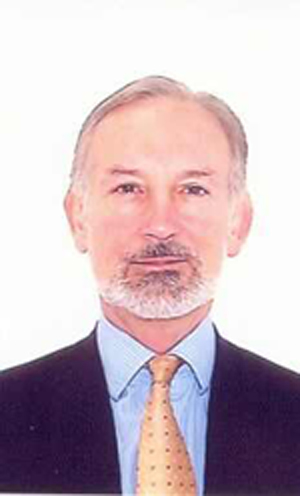 Gilbert Doctorow
Gilbert DoctorowResearch Fellow of the American University in Moscow
Soft power is largely an American PR gimmick
The recent nose-thumbing at Russia and China by Professor Joseph Nye in Foreign Policy magazine over the inability of those countries to marshal soft power is flawed in a number of ways that go beyond the methodological weaknesses of his scholarly writings that I have described at length elsewhere.¹
It is curious that Nye insists soft power is purely the work of a free society and cannot be formed or directed by governments like the Chinese or the Russians, when in his own 2004 master work on the concept he bemoaned the cutbacks in US government-financed image projection by the USIA going back to the end of the Cold War. And in the same work he listed steps that Washington should do to promote soft power, including educational and military exchanges, liberalization of visas and the like.
I have long agreed with Nye that the Kremlin’s efforts at exercising soft power have often been inept. For example, the Valdai Discussion Club meetings have only flattered fat-cat American academics who, after their photo opportunity with Vladimir Putin, returned home and laid into Russia with even greater vigor from their university and think-tank perches. At the same time, Russia’s cultural icons are genuinely very popular abroad.
The Hermitage Amsterdam is a world-class calling card that carries weight greater than the humbler British Council or Alliance Française installations. The Mariinsky Theater, newly launched into a Lincoln Center type complex with the opening of its second stage, enjoys worldwide respect both on tour and at home during the White Nights Festival. Friends in the travel industry assure me that the coming summer season bookings of upper middle-class American tourists to Moscow, St Petersburg and the Golden Ring are at a multi-year high.
There is not much in all of this for the Kremlin to use in furtherance of its foreign policy objectives. But then the fact that Hilary Clinton chose Nye as the State Department’s house philosopher during her tenure did not change the substance of Obama’s foreign policy even if it may have influenced the sound bites. And it could not be otherwise, because soft power is largely a public relations gimmick.
Since Nye is an idealist rather than a realist, he systematically fails to understand that soft power is above all a by-product of wealth and success. America’s undisputed power of attraction to peoples around the world (when it is not invading hapless countries) has more to do with its per capita GDP than with any other factor. This explains the passion of ambitious people everywhere to send their children to American colleges, whatever their ratings. It explains the popularity of Hollywood and pop culture and much more. There is nothing wrong with this; it is all understandable in human terms. But it has relatively little to do with vibrant civil society or any beacon of human rights radiating from Washington, D.C. In this respect, the best thing that Russia or China can do to further their soft power is to get richer quick.
In the meantime, Beijing and Moscow would be wise to keep their eyes on the ball, that is on their hard power. If you can’t be loved, it is quite sufficient to be respected.
1 - The underlying notion of soft power can be sufficiently explained in a sentence or two. Nye has written volumes. However, his "research” is utterly indiscriminating and he is enthralled by new media. See my critique in Great Post-Cold War American Thinkers on International Relations (2010)
Edward Lozansky
President American University in Moscow
Professor of World Politics, Moscow State University
Russia’s priority should be the fight against hostile propaganda
With all due respect to Professor Joseph Nye of Harvard, who coined the term "soft power”, I would argue that his achievement lies not in what he actually meant by the term but in that he found a respectable and not too controversial a phrase for unpleasant things widely known as propaganda, disinformation or, worse still, information warfare.
In the not so distant past, the differences between Western and communist societies were so blatant that Soviet propaganda could do little, if anything, to correct the image of the USSR. The ridiculous jamming of the Voice of America, BBC, Radio Liberty and even of Radio Beijing was merely a huge waste of money. More than that, it was counterproductive, for even the less educated and sophisticated public got a clear message that the Kremlin rulers had a lot to hide.
In an ironical historical twist, these days – when jamming is long forgotten and information flows quite freely – the majority of the Russian people believe that it is the West that has a hidden agenda hostile to their country.
Whatever any self-appointed democracy rating agencies might say, Russia is now a free country. Its version of democracy is not perhaps equivalent to what is known as the Western model, but it is free enough in the context of its historical, cultural, religious and other traditions. Even the loudest critics of Russia must admit (though they mostly prefer not to) that the progress made by that country in a relatively short period of time is little short of stunning.
Russians are now free to travel, form political parties, set up businesses. They have unlimited access to information – not only through the Internet but, yes, through radio and TV as well. There are some restrictions on a couple of federal TV channels but, first, they are offset by myriad TV channels outside state control, especially at the regional level, and second, even those state-controlled TV outlets have recently added a few talk shows that offer practically uncensored debates on the most controversial political, social, economic and cultural issues, among other topics.
The print media are even more diverse. Any honest and unbiased observer will admit that the level of criticism of the government and of government officials, up to and including the president, in the local Russian- and English-language press is not very much different from that in the West.
Nevertheless, the Western media overflow with the most vehement criticism of Russia and particularly of the country's president, Vladimir Putin. To those who remember the Cold War times this criticism sometimes sounds even more virulent than that directed at the USSR. And it cannot be denied that this sort of media coverage hurts Russia's image, its investment climate and its position on the international arena.
The Kremlin naturally realizes this. It has taken, within the last few years, several steps toward creating and using its own soft power mechanisms to counterbalance these negative effects, but that is a task easier said than done.
I will not list here all the well known projects that have so far been put into effect – anyone interested in this subject can easily find them on the web. Recently the government under direct orders from Putin announced many new and even more ambitious programs. However, it is doubtful that Russia has enough experienced professionals to implement all these grandiose ideas. The other side, I mean the anti-Russia camp, has hosts of highly skilled professionals and practically unlimited funding. The recent departure of Boris Berezovsky has slightly diminished the volume of those funds but not to worry – there are still plenty around for this kind of activity.
Where does it leave those of us who believe that the anti-Russia hysteria, which Joseph Nye and others prefer to call "soft power," is dangerous not only to Russia but also to America and generally to the West, as it keeps pushing Russia onto the other side of the barricades?
Again, the above-mentioned new programs seem to be positive steps in the right direction, but no results can be expected immediately, especially in view of the nature of Russia's infamous bureaucracy and the obvious lack of sufficient numbers of highly skilled professionals.
Another way to fight the anti-Russia bias in US (and for that matter the anti-American bias in Russia) is through some direct actions. For example, a few anti-terror or anti-drug-trafficking operations by joint US-Russia squads followed by proper PR coverage might turn around public opinion in both countries. Intelligence-sharing and mixed representation at rank-and-file and command levels would be the key to success.
Such activities need not be limited to military operations only. Ideas for joint projects abound in almost any field. Some 18 US-Russian committees have been established by the Obama and Medvedev administrations. They have been tasked with searching for such good ideas but, except for occasional bilateral meetings producing no tangible results, we hear little about their activities.
All this is only possible, of course, if both sides are serious about working toward rapprochement instead of inventing meaningless terms like "reset." However, Washington is reluctant to move toward closer US–Russia ties and points to the "values gap” as an excuse. The striking differences in values between America and, say, Saudi Arabia or Qatar somehow do not prevent Washington from calling these countries America’s allies. The values of Russia, a European country with age-old links to Western Europe, are a different matter.
This sort of incongruity makes Russians’ above-noted concerns about the West's hidden agenda all the more understandable. The West should face up to reality: there are enough threats to Western civilization without making a new bogey out of a nation that is a menace to no-one and that is open to wide-ranging cooperation and partnership with everyone.
 Dmitry Mikheyev
Dmitry MikheyevFormer Senior Fellow at the Hudson Institute, teaches "Leadership in the 21st century” at various business schools in Moscow
Anglo-Saxons vs. Russia and China: We need a third way
According to Professor Nye, people and nations can be either coerced (by intimidation) or induced (by bribery) to do something that they don’t want to do; alternatively, they can be persuaded by the force of attraction [1]. Professor Nye’s discrimination between coercive, inductive and attractive forms of power invites provocative questions. What if civilizations didn’t clash but competed for the hearts and minds of humankind? What if military and manufacturing might, cash or energy were excluded from the equation? Would China and Russia have any soft power to attract other nations and induce them to follow their examples?
Professor Nye is convinced that the US culture, its values, political ideals, and its socio-economic model are overwhelmingly superior to those of Russia and China and universally attractive. Why, then, the rise of anti-Americanism on a global scale, even among the members of the Western alliance? Because, he thinks, American foreign policy relies too heavily on the coercive military strategy while under-utilizing its tremendous soft power. America could be a true leader of mankind if it relied less on its hard power and instead convinced others that its socio-economic-political system and way of life offer maximum prosperity and happiness.
For centuries, American foreign policy has followed the same scenario. First we apply hard power: bomb the country to the ground and eliminate all bad guys. Then we embark on the "war for hearts and minds” and launch a "charm offensive.” We give chocolate bars to children, flowers to women and power to good guys, whom we guide through the process of democracy building. The problem with this strategy is obvious: the "charm offensive” works very badly in a nation traumatized by death and destruction. Democracy is essentially a mechanism of balancing conflicting interests through negotiations, compromises and mutually beneficial accommodation. This requires a certain level of prosperity and literacy, of mutual trust and respect among societal factions – not hatred, frustration and desire for revenge.
The principal flaw of Professor Nye’s theory lies in the assumption that there exists a sole superior civilization and that the US is its proprietor. This self-proclaimed moral superiority and exceptionalism, which exempts America from international treaties and laws, is an automatic irritant and source of hostility for others. Nobody likes a self-righteous and arrogant bully who intimidates and humiliates others by accusing them of corruption, oppression and tyranny.
At this stage of history, Russia’s and China’s "soft power” is minuscule. Both cultures’ reputations were severely damaged by the legacy of class-war and totalitarianism, and by the recent mindless imitation of predatory capitalism, which resulted in corruption and horrendous social disparities. However, both Russia and China have much older, enduring and precious cultural legacies. Russian is the only civilization which has managed to survive in close contact with five major civilizations – the Western, Confucian, Buddhist, Islamic, and Hindu. Yes, she used her "hard power” for imperial expansion, but perhaps even more often to beat off invaders. Such record of survival wouldn’t have been possible without a talent for tolerance and receptivity toward different cultures – that is, without a considerable soft power.
Take Russian literature, which was universally recognized for its unparalleled humanism. At the time when Rudyard Kipling and Turner glorified violence and war as manifestations of manliness and spiritual health, the best Russian poet called for mercy toward the weak and miserable (milost k pavshim vospeval). When Theodore Roosevelt called peace "ignoble" and "slothful," Tolstoy and Dostoevsky condemned horrors and idiocy of war and revolution and put gentle and compassionate heroes on a pedestal.
When the best Anglo-Saxon minds (Herbert Spencer, Thomas Huxley, William Sumner, Arthur Keith to name just a few) were laboring on the theory of "social Darwinism” – according to which the world is an arena of mortal competition for scarce resources where only the strongest survive – Russian intelligentsia worshiped narod (the people) and defended it from the Tsarist regime. While the German anthropologist Ernst Haeckel insisted that, "The cruel and merciless struggle for existence which rages throughout living nature … must rage,” for the betterment of human species, the Russian Petr Kropotkin pleaded for love and cooperation, and thousands of Russian teachers and doctors voluntarily moved to the countryside to spread literacy and healthcare among the narod.
While Western branches of Christianity emphasize austerity, fear of God and intellectualism, Russian Orthodox Christianity emphasizes love, beauty, harmony and moral perfection.[2] While the angry Protestant God sends down to Hell all but the chosen few, Orthodox God loves all human beings, including the sinners. While Western Christianity drums up the imminent apocalyptic destruction of mankind, Russian Orthodoxy promises salvation of the world in unity with the loving God.[3]
Russia has never claimed racial or religious exclusivity. On the contrary, she has aspired to be a cultural bridge between the West and East. Russian literature and philosophy have promulgated acceptance, multiculturalism, and cooperation. Orthodox Christianity, and even more so Confucianism, believes that while animosity and strife are frequent and ubiquitous, they are nevertheless aberrations. The norm is not the "clash of civilizations” which is supposed to end up with the triumph of the most vigorous and fittest of all. Cultures not only must coexist; they can benefit from mutual learning and enrichment. For both Confucianism and Orthodox Christianity war is the ultimate evil which must be avoided by all means. Conflicting interests can and should be reconciled through mutual concessions in negotiations rather than in a zero-sum contest on the battlefield. Accordingly, hard power should be minimized and reserved for the truly recalcitrant violators of universal ethical norms.
To sum up, Russian, Confucian, Islamic and other cultural traditions can all contribute to the best symbiosis. Between two extremes – the ultimate individualism of Anglo-Saxonism, with its selfishness and hedonism, and the collectivism of Eastern cultures which kills originality and stifles creativity – there surely must be a more balanced third option – communalism, which cherishes individuality. Why should there be either the youthful culture – daring, innovative yet reckless and cruel – or the patriarchal culture, full of wisdom and caution, yet conservative and stifling? Why should there be either total domination of one gender over another or their total equality in everything? I, for one, adore their charming peculiarities.
[1] Joseph Nye, Power in the Global Information Age: From Realism to Globalization (Routledge, 2004)
[2] John T. Chirban (ed.), Personhood: Orthodox Christianity and the Connection between Body, Mind, and Soul (Bergin & Garvey, 1996).
[3] Thomas E. Fitzgerald, The Orthodox Church (Praeger Publisher, 1998).


